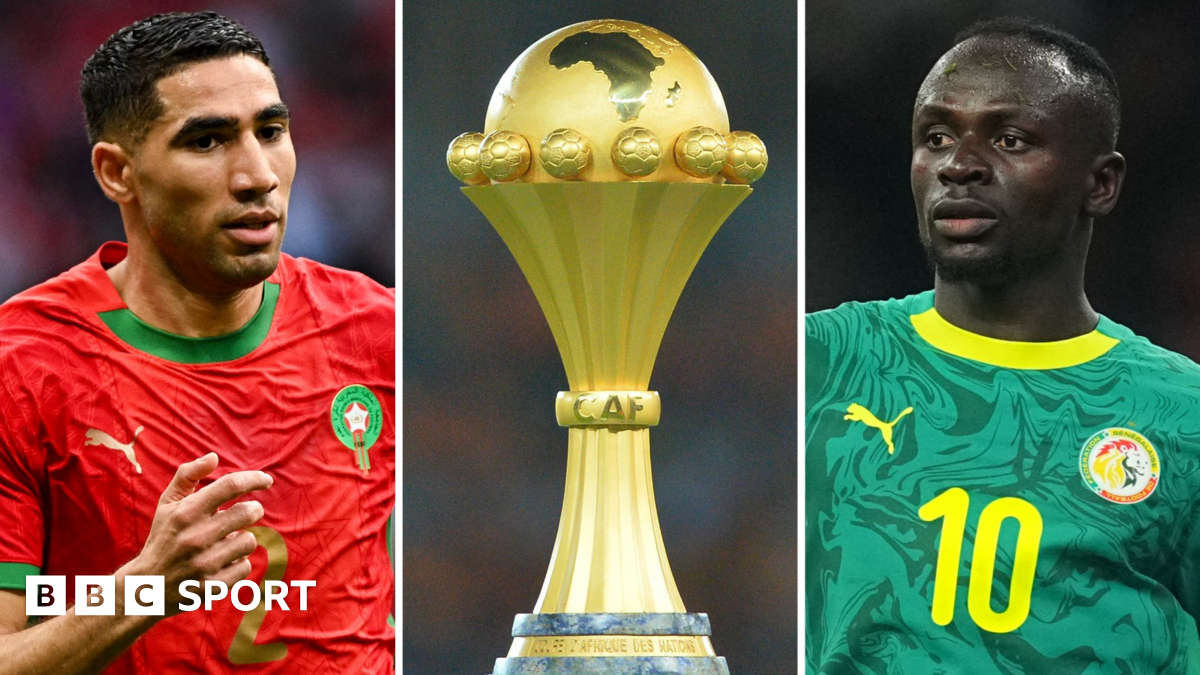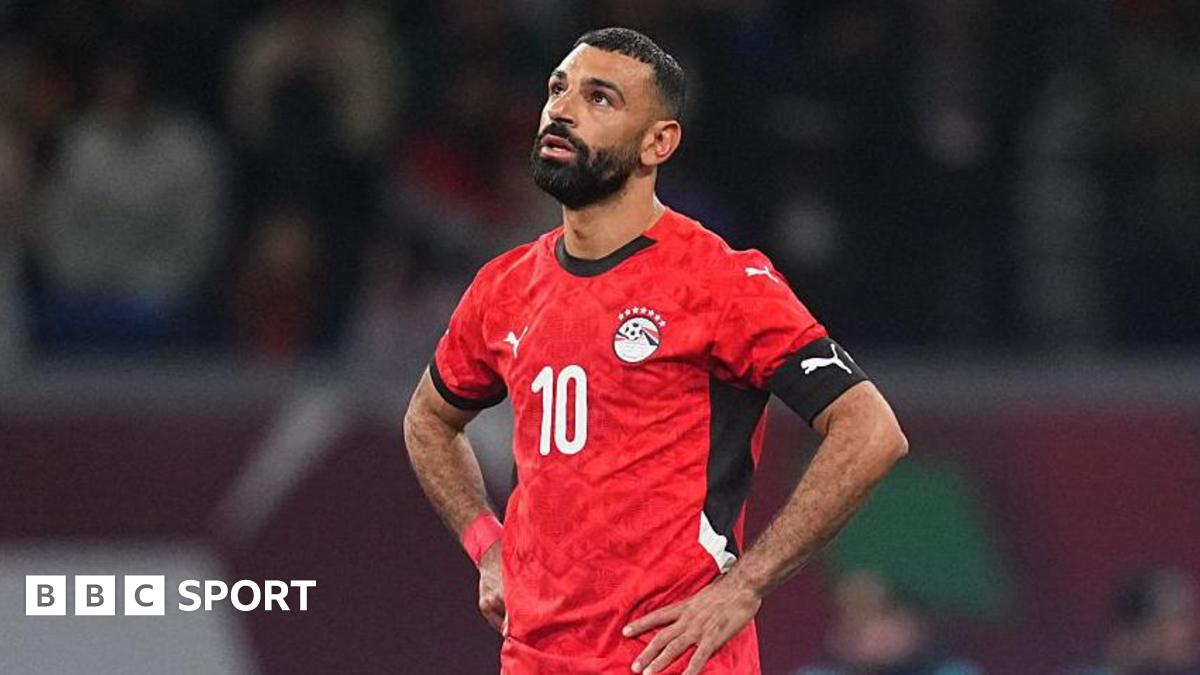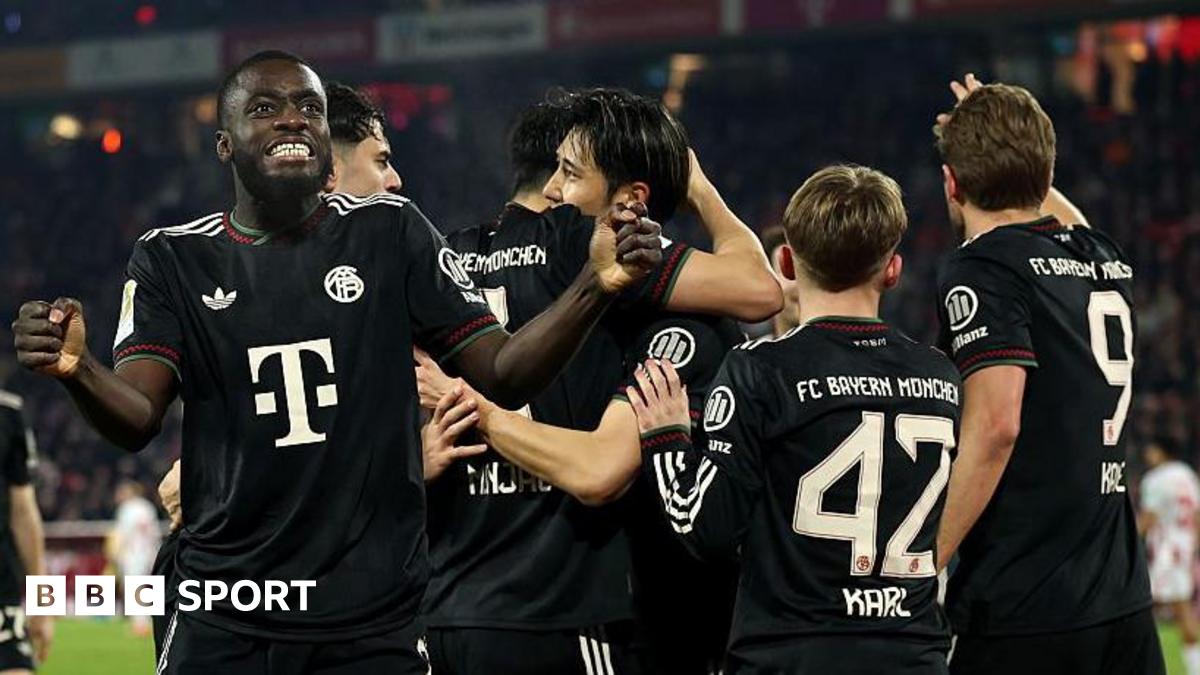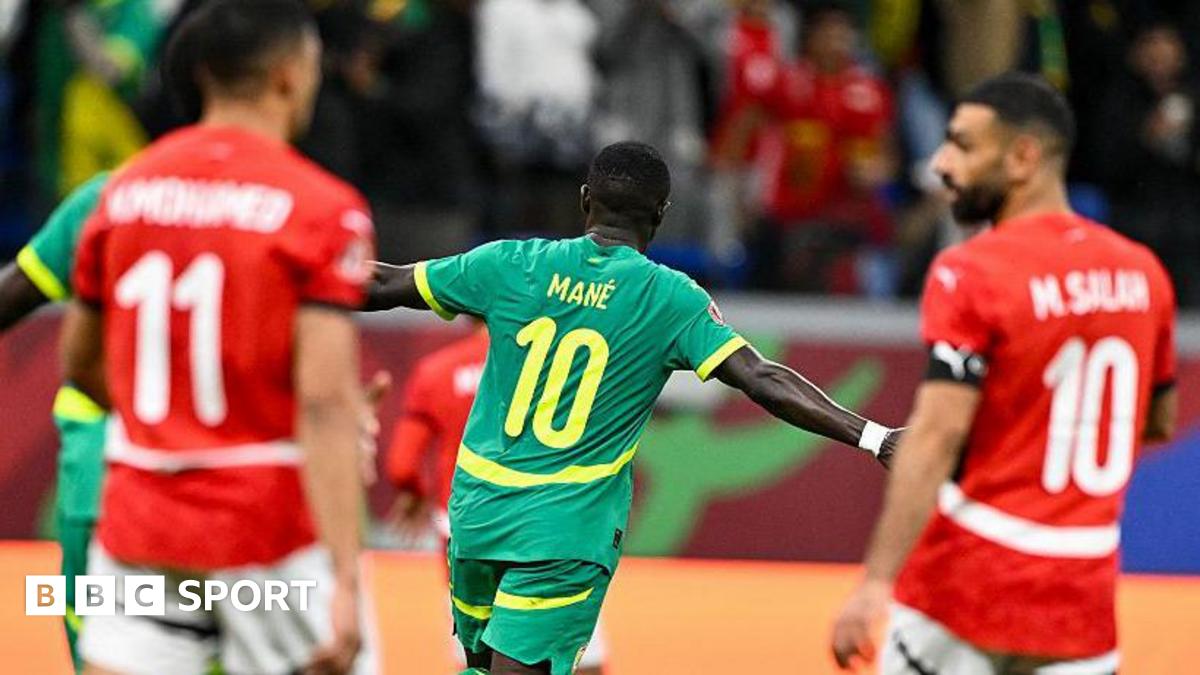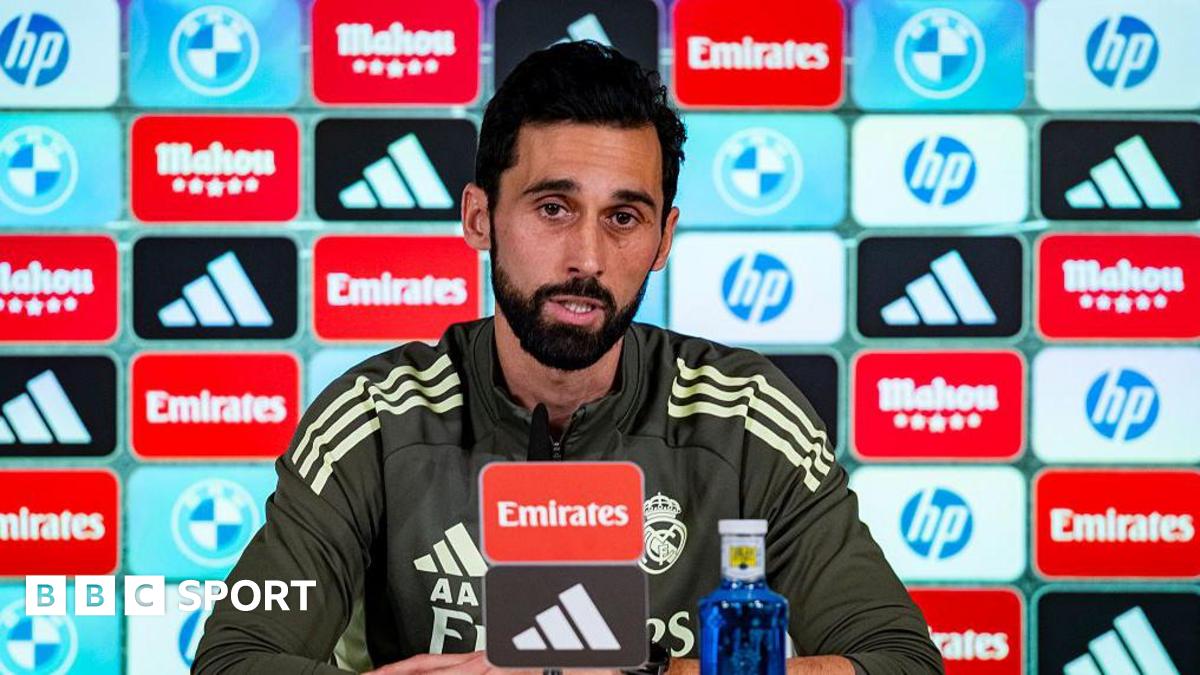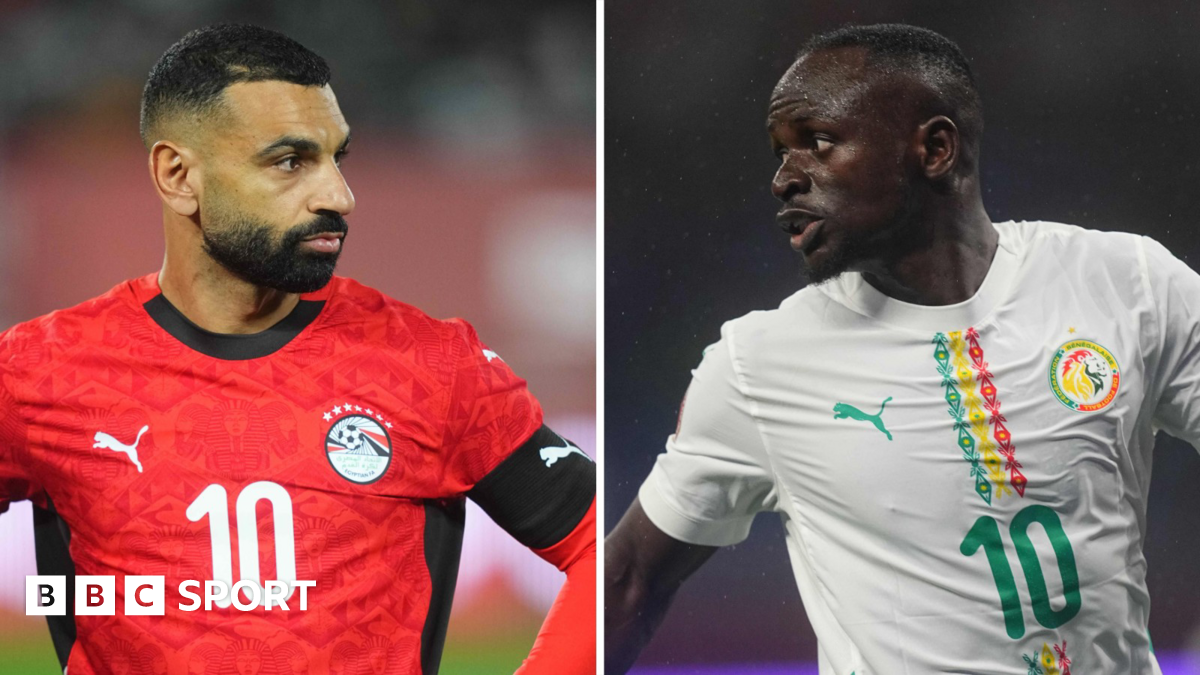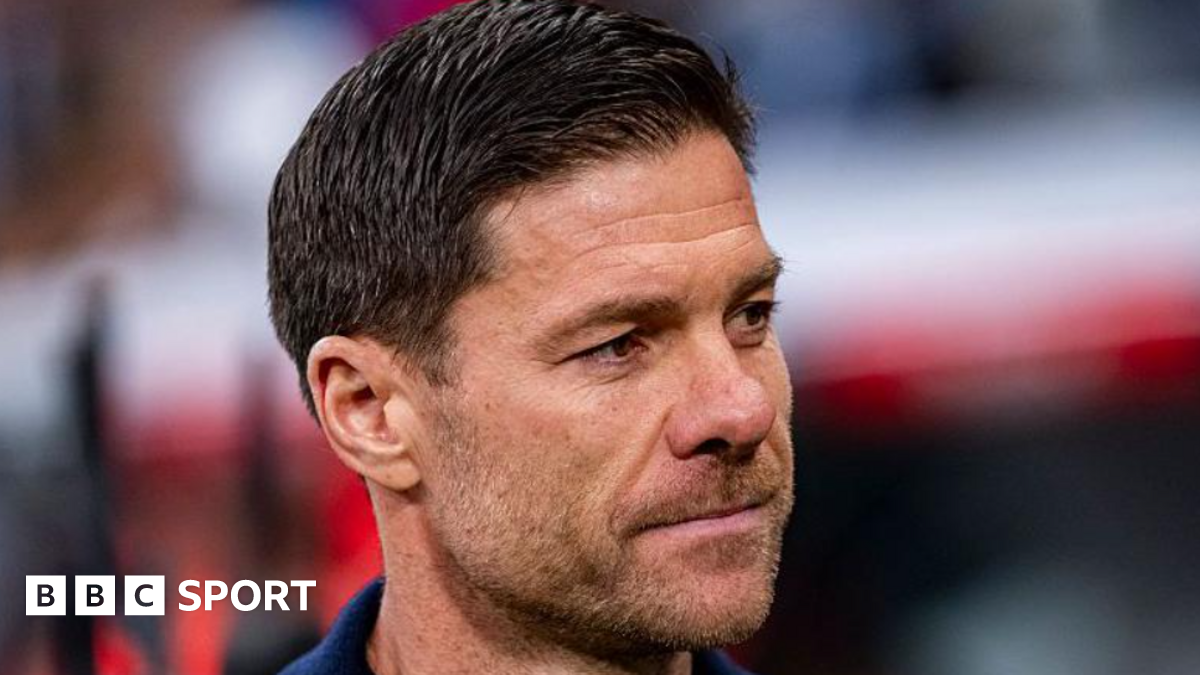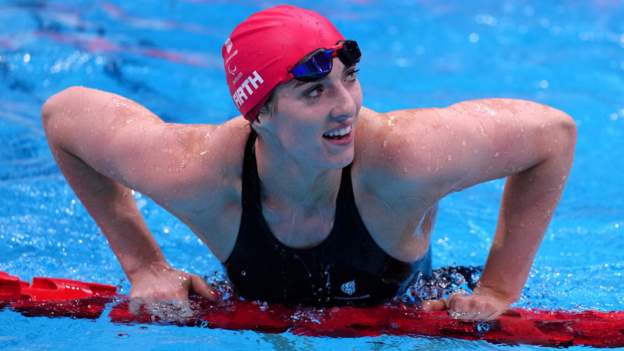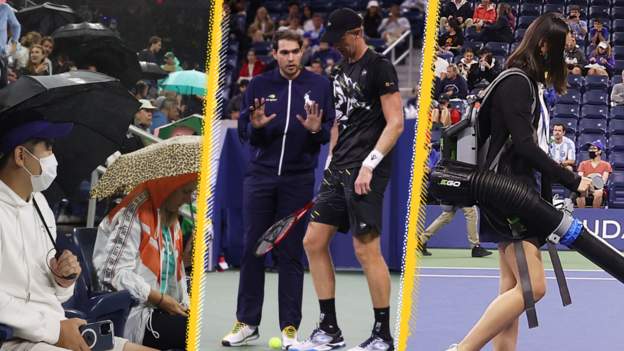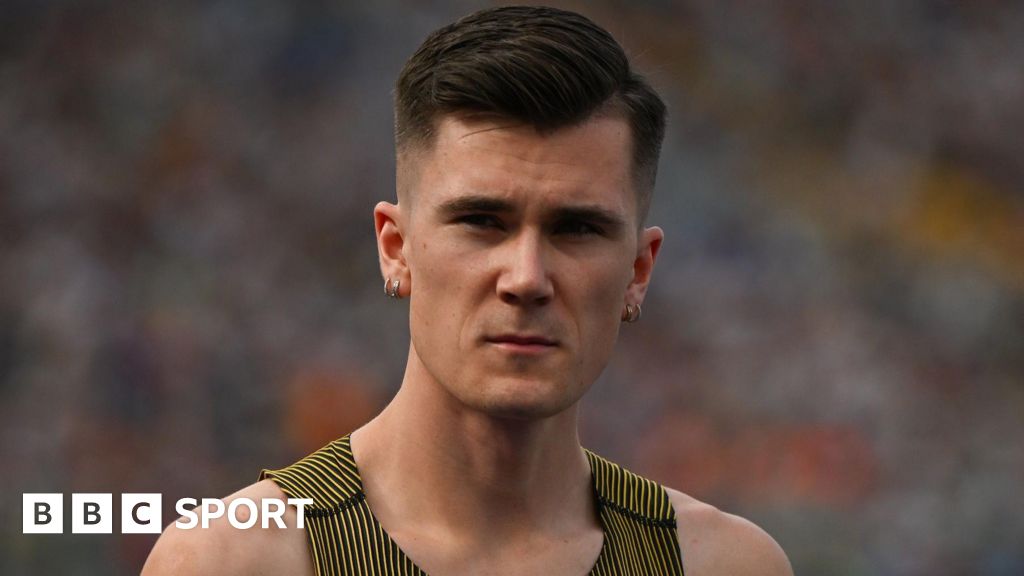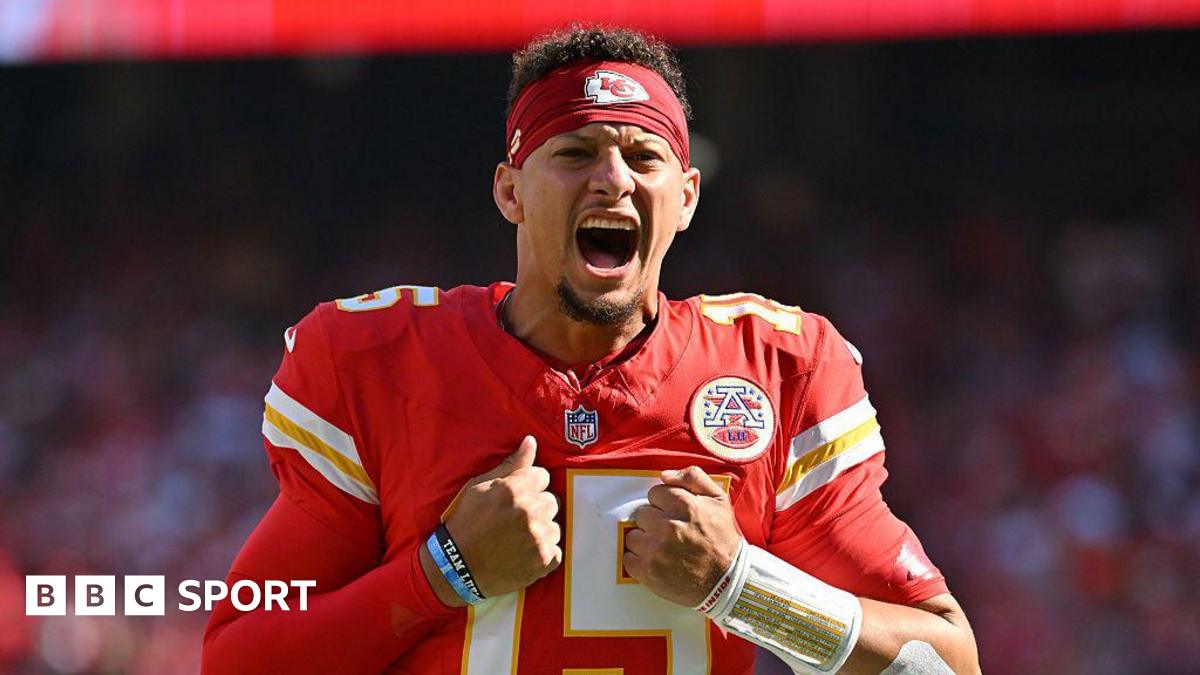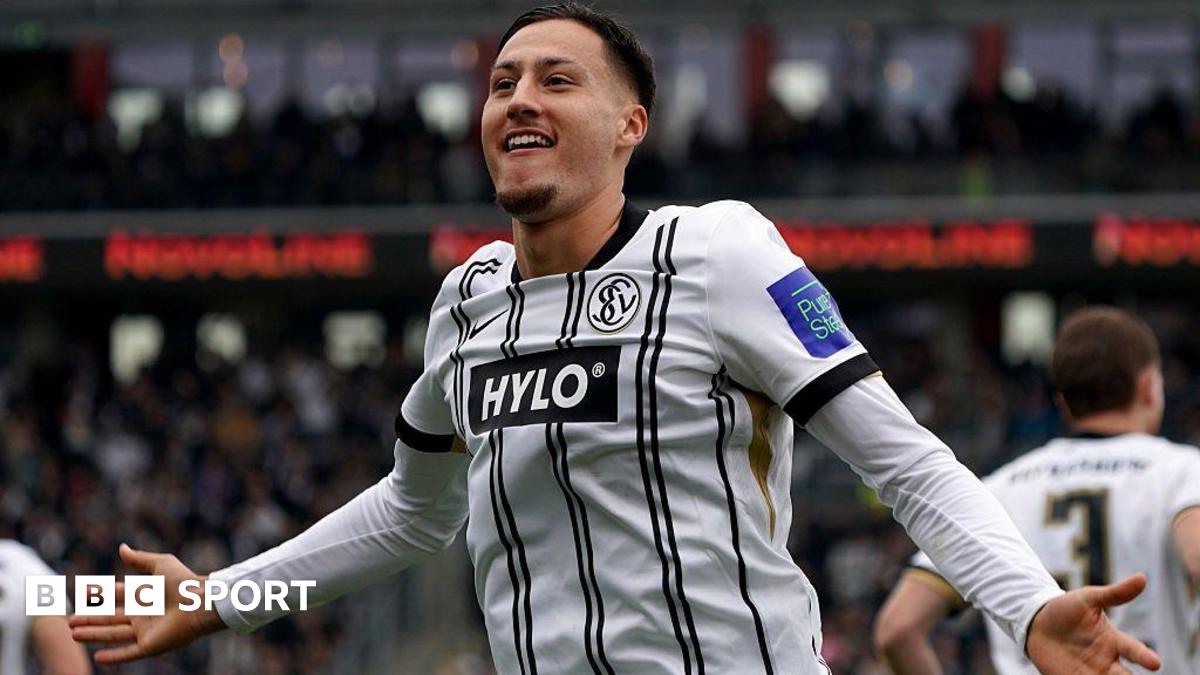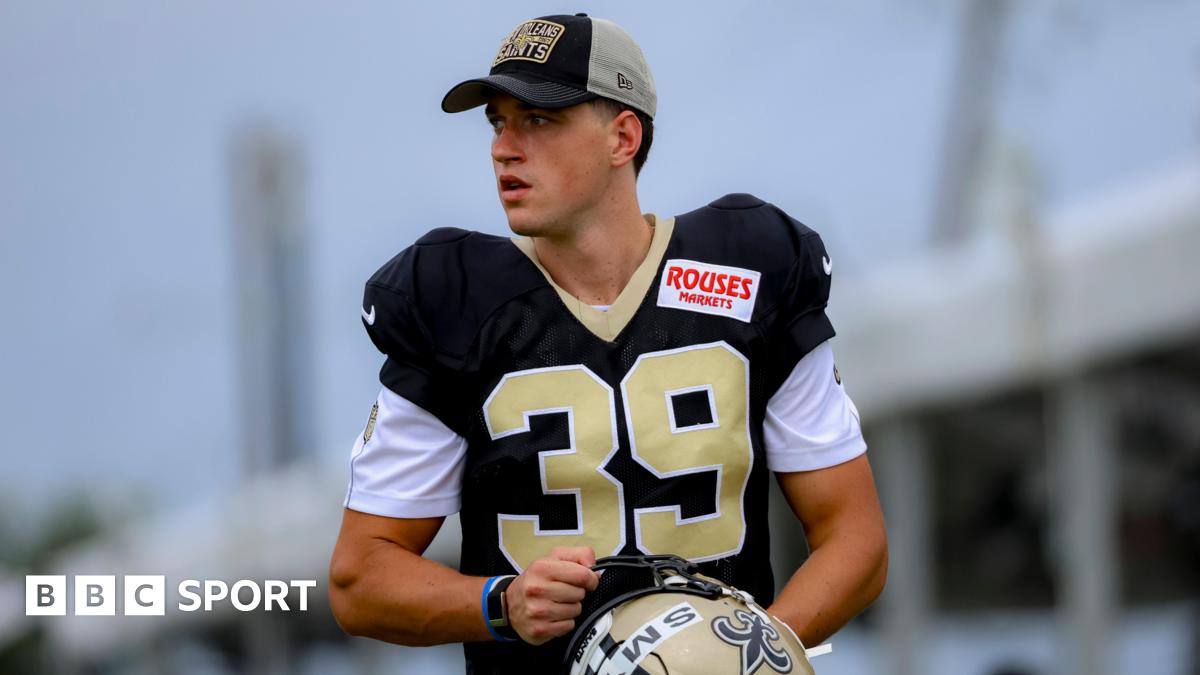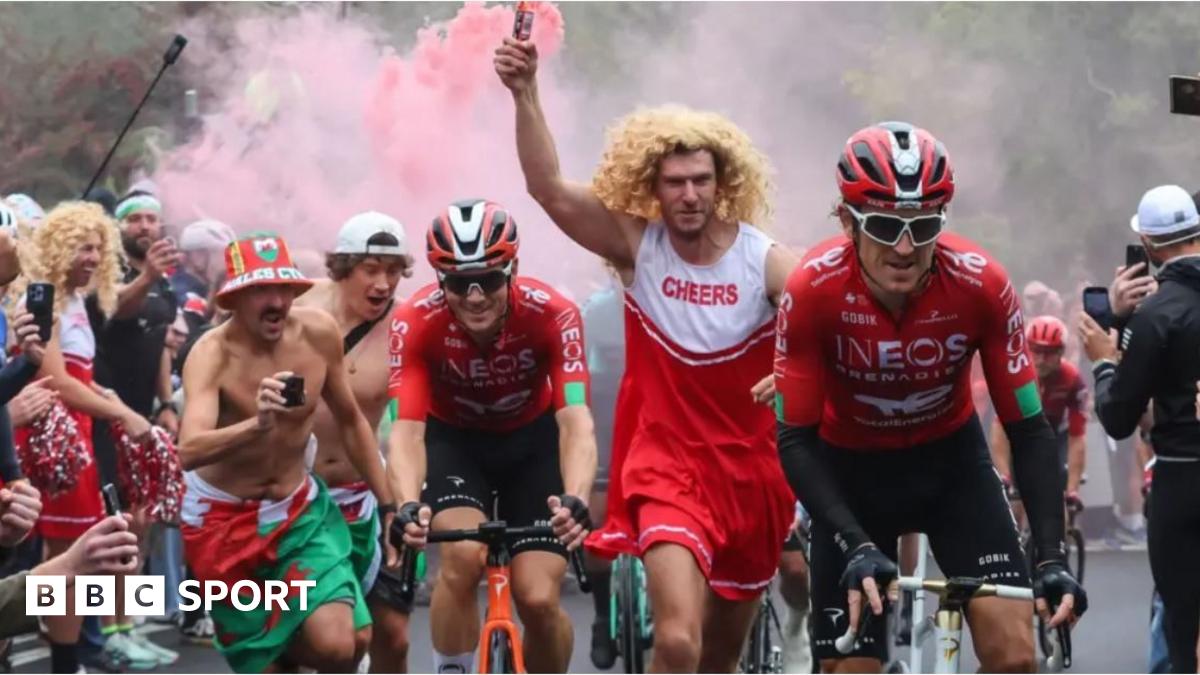| Venue: Tokyo, Japan Dates: 24 August-5 September Time in Tokyo: BST +8 |
| Coverage: Follow on Radio 5 Live and on the BBC Sport website |
Swimmer Bethany Firth and cyclist Ben Watson both added to their Paralympic medal tally as Great Britain’s medal rush continued on day nine in Tokyo.
Firth won her third consecutive S14 100m backstroke Paralympic title with a dominant display.
The 25-year-old led from start to finish to beat Russian rival Valeriia Shabalina by 0.93 seconds for her sixth gold overall and a fourth medal of these Games.
Team-mate Jessica-Jane Applegate battled superbly for bronze – her third Tokyo medal.
Firth, from Northern Ireland, had won the title at London 2012 while representing Ireland but switched to represent GB in 2013 and went on to retain her crown in Rio.
Her triumph followed earlier success for Watson who won his second gold in Tokyo with a brilliant victory over team-mate Fin Graham in the men’s C1-3 road race.
On a day when Sarah Storey won an historic 17th gold medal at the Fuji Speedway, the 32-year-old debutant completed a double having won the time trial on Tuesday.
Wheelchair racer Sammi Kinghorn followed her T53 100m bronze with silver in the T53 400m while swimmer Reece Dunn claimed his fifth medal of the Games with bronze in the S14 100m backstroke.
But five-time gold medallist Ellie Simmonds could only finish fifth in the S6 400m freestyle in what is set to be her Paralympic swansong.
And discus thrower Dan Greaves dealt with dreadful weather conditions to become the first British track and field athlete to win medals at six consecutive Games.
Greaves, 38, who made his debut at Sydney 2000, won bronze in the F64 event with a best effort of 53.56m in torrential rain.
Elsewhere, after failing to qualify for the semi-finals of the women’s T11 200m, double Paralympic champion Libby Clegg has announced her retirement from the sport.
The 31-year-old won T11 100m and 200m gold at Rio 2016, having taken silvers at Beijing 2008 and London 2012. She is still due to compete in the universal relay on Friday.
Wheelchair tennis pair Jordanne Whiley and Lucy Shuker are into their first Paralympic final after defeating China’s Ziying Wang and Zhenzhen Zhu in the women’s doubles semi-finals 6-4 6-2.
They will face Dutch top seeds Diede de Groot and Aniek van Koot in the final.
Whiley had earlier lost 6-4 6-2 to De Groot in the women’s singles semi-finals and will face Van Koot for bronze.
Gordon Reid failed to retain his men’s singles title as he was beaten 6-3 6-2 by top seed and home favourite Shingo Kunieda in the semi-final, while Alfie Hewett lost out to Dutchman Tom Egberink 6-4 7-6 (7-5).
It means the British pair will play off for bronze on Saturday.
Britain’s Emma Wiggs qualified safely for both of her finals as the Para-canoe events got under way at the Sea Forest Waterway.
Wiggs, the reigning KL2 champion, also goes in the VL2 event and won both her heats to advance to the finals on Friday and Saturday.
Former swimmer Charlotte Henshaw joined Wiggs in the KL2 final while Laura Sugar won her KL3 heat.
Meanwhile, Belgian wheelchair tennis player Joachim Gerard, the world number three, was taken to hospital after suddenly feeling faint.
A statement from the Belgian Paralympic Committee said: “First research is pointing towards a cardiac issue. Gerard will stay in hospital for further observation.”
The 32-year-old was beaten in the third round of the men’s singles and the quarter-final of the men’s doubles on Monday.
Sweet success for Firth
Firth had a rocky build-up to Tokyo, with an ongoing shoulder injury disrupting her preparations, as well as the Covid-19 restrictions.
Shabalina took her 200m freestyle and 200m individual titles earlier in the programme while Firth was part of the victorious 4 x 100m freestyle relay team.
However, she was not going to give up her backstroke title without a fight and after qualifying fastest, made no mistake in the final.
“This is my favourite event, the one I’ve been waiting for all week,” she said.
“Having won it in London and won it in Rio, I wanted to come here and I wanted to smash this one, too.
“It’s been such an up and down season, I just wanted to come out here and make everyone proud.”
Wonderful Watson wins again
Aged 14, Watson was diagnosed with Guillain Barre syndrome, which left him paralysed for five months and meant he had to learn to walk again.
It left him with impairment below his knees and although he was always keen on mountain biking, he never realised Para-sport was an option.
Five years ago he was working as a chartered surveyor and, in his own words, “a bit fat” when he attended a British Cycling talent ID day and the journey to gold started.
Watson was in control once he went clear and Graham, who won individual pursuit silver on the track earlier in the Games, broke away from the pack to all but confirm the British one-two.
He crossed the line one minute and 20 seconds behind Watson with France’s Alexandre Leaute taking bronze, almost seven minutes after Watson had won, with the third Briton Jaco van Gass missing out in fifth.
“Cycling has been a huge life-changer,” added Watson. “The illness has been a huge life-changer too but it makes you a stronger person. It helps in a situation like this. You can put it all out.”
Happy ever after at the athletics track
Cape Verde sprinter Keula Pereira Semedo and her guide Manuel Vaz da Veiga might have finished last in their heat of the women’s T11 200m but there was a silver lining.
Vaz da Veiga proposed to his girlfriend and racing partner on the track after the race with the rest of the field around them – a moment he had been planning since Pereira Semedo was selected for the Games in July.
“I thought this was the best occasion and the best place to do it,” he said. “An athletics track is her second home. She has been competing since 2005.
“We have been together in a relationship for 11 years, so I thought it was about time to come up with a proposal. So why not do it?”
Luckily for him, Pereira Semedo, 32, said yes.
“With the proposal there’s just too many emotions going on right now,” she said. “I don’t have words to explain how I feel. I am sure our parents will go crazy. They will like it.
“These were my first Paralympic Games and with my age and speed I was actually thinking about stopping afterwards but now I have an additional motivation to carry on after the Games, always with him by my side.”




